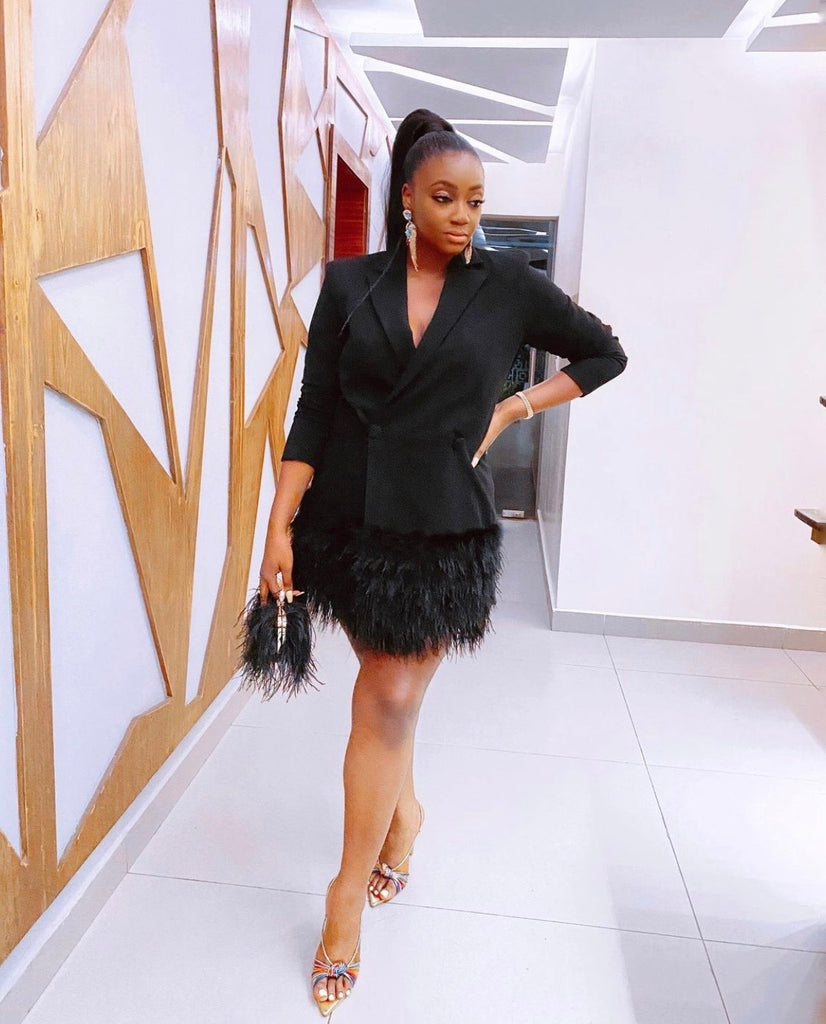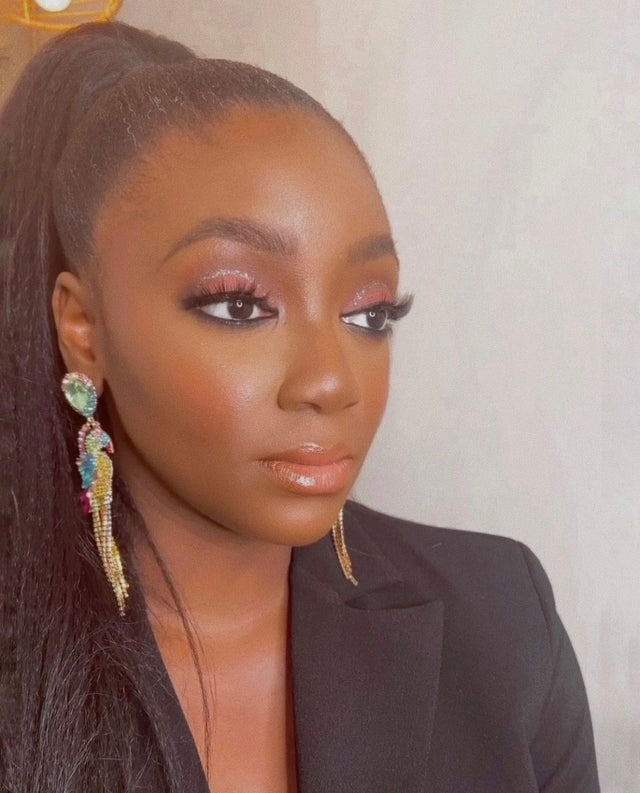Our Folklore: Kanyinsola Onalaja on Reinterpreting African Craft for the Modern World
Growing up in Nigeria, Kanyinsola Onalaja did not always have dreams of working in fashion. When she left for school in England, she believed that she would go to Cambridge University and become a lawyer. For her, design was just a creative outlet after her mother taught her to draw and exposed her to the textile industry. Eventually, she realized her passion and decided to study fashion in London at the Istituto Marangoni and 3D pattern cutting at Accademia di Costume E Moda in Rome. Kanyinsola also worked with British designers Christopher Kane and Giles Deacon while completing her studies. At Giles Deacon Couture, she created a lot of embroidery samples, which led her to partnering with a friend to sell samples for various brands in London and Paris.
In another change of plans, Kanyinsola moved back to Nigeria, wondering how different of an experience living there as an adult would be. “For me, it was kind of like an experiment, and I just haven’t left yet,” she says. But as she continued to create embroidery samples, she realized that this experience would translate well for selling her own designs, and in 2015 she applied for Lagos Fashion Week and started her brand, Onalaja. She doesn’t consider the first collection as some of her best work, but it worked as a starting point for developing her creative vision.
Referred to as accessible art, the Onalaja brand has become a marriage of African craftsmanship and Western styles. Coming from two different tribes, Yoruba and Edo, Kanyinsola draws on this heritage with heavy embellishments and fractal design (when a small section taken from a piece represents the whole design on a smaller scale). But studying abroad had taught her about the industrial production of pieces, as opposed to the individual tailoring that is common in Africa. Her knowledge of Western techniques and styles presented a learning curve for the Onalaja team that consisted of seamstresses who were accustomed to traditional Nigerian fashion. With her designs, Kanyinsola is learning the importance of balance with the design process and the individual elements.
In this episode of Our Folklore, we sat down with designer Kanyinsola Onalaja for a conversation about balancing traditional Nigerian fashion with contemporary design and the methodology behind her creativity. Listen to the podcast here and on Apple Podcasts or Spotify, and read excerpts from the interview below.

“I really just try to create pieces that are like wearable art, an expression of things I’m going through or feeling or experiencing, or just things around me, basically.”

When you’re studying, we always refer back to Africa, and for me Africa was always a point of call for my research. So, it made sense for me to come back and see everything and experience everything first hand.”

“Some pieces are over the top; some pieces are more accessible but I think the one thing that’s constant is the fact that [the Onalaja woman is] a modern woman living a multifaceted life.”
 Shop the Elia Mini Dress by Onalaja
Shop the Elia Mini Dress by Onalaja
“I’ve been looking back on my work, and I’ve realized there’s a theme, and it’s the 70s, so everything disco glam. So, even though, yes, it’s inspired by Africa, but the heavy embellishment, the shininess, the metallics, the pleating is very much Studio 54.”
 Shop the Elia Joux Dress by Onalaja
Shop the Elia Joux Dress by Onalaja
“I’m still trying to find my footing, but I definitely think that I have everything that people here appreciate: the handcrafting and the artisanal elements of the brand.”
 Backstage at the Onalaja SS21 show
Backstage at the Onalaja SS21 show
“I want to be able to show people, and to show other young people that, you know, you can actually do this, and create your own lane in your own avenue and succeed at it. It might not be easy but you’ll get there, you’ll create your own footing or leave your mark in whatever it is that you choose.”
 Backstage at the Onalaja SS21 show
Backstage at the Onalaja SS21 show
“The most important thing for me is representing my culture and my heritage because I think a lot of people have a vision of Africa and, within the pieces, I would like to tell people about the Africa they don’t really see… It’s not all what you see in the media.”
Shop the Onalaja collection here
Words by Claire Blaha

